- Home
- Fredric Brown
Hall of Mirrors Page 2
Hall of Mirrors Read online
Page 2
thatseventy-five-year-old man, with your body returned to what it had beenfifty years ago, with all the memories of fifty years of living wipedout.
_You_ invented the time machine.
And before you used it on yourself, you made these arrangements to helpyou orient yourself. You wrote yourself the letter which you are nowreading.
But if those fifty years are--to you--gone, what of all your friends,those you loved? What of your parents? What of the girl you aregoing--were going--to marry?
You read on:
"Yes, you will want to know what has happened. Mom died in 1963, Dad in1968. You married Barbara in 1956. I am sorry to tell you that she diedonly three years later, in a plane crash. You have one son. He is stillliving; his name is Walter; he is now forty-six years old and is anaccountant in Kansas City."
Tears come into your eyes and for a moment you can no longer read.Barbara dead--dead for forty-five years. And only minutes ago, insubjective time, you were sitting next to her, sitting in the bright sunin a Beverly Hills patio ...
You force yourself to read again.
"But back to the discovery. You begin to see some of its implications.You will need time to think to see all of them.
"It does not permit time travel as we have thought of time travel, butit gives us immortality of a sort. Immortality of the kind I havetemporarily given us.
"_Is it good?_ Is it worth while to lose the memory of fifty years ofone's life in order to return one's body to relative youth? The only wayI can find out is to try, as soon as I have finished writing this andmade my other preparations.
"You will know the answer.
"But before you decide, remember that there is another problem, moreimportant than the psychological one. I mean overpopulation.
"If our discovery is given to the world, if all who are old or dyingcan make themselves young again, the population will almost double everygeneration. Nor would the world--not even our own relatively enlightenedcountry--be willing to accept compulsory birth control as a solution.
"Give this to the world, as the world is today in 2004, and within ageneration there will be famine, suffering, war. Perhaps a completecollapse of civilization.
"Yes, we have reached other planets, but they are not suitable forcolonizing. The stars may be our answer, but we are a long way fromreaching them. When we do, someday, the billions of habitable planetsthat must be out there will be our answer ... our living room. But untilthen, what is the answer?
"Destroy the machine? But think of the countless lives it can save, thesuffering it can prevent. Think of what it would mean to a man dying ofcancer. Think ..."
* * * * *
Think. You finish the letter and put it down.
You think of Barbara dead for forty-five years. And of the fact that youwere married to her for three years and that those years are lost toyou.
Fifty years lost. You damn the old man of seventy-five whom you becameand who has done this to you ... who has given you this decision tomake.
Bitterly, you know what the decision must be. You think that _he_ knew,too, and realize that he could safely leave it in your hands. Damn him,he _should_ have known.
Too valuable to destroy, too dangerous to give.
The other answer is painfully obvious.
You must be custodian of this discovery and keep it secret until it issafe to give, until mankind has expanded to the stars and has new worldsto populate, or until, even without that, he has reached a state ofcivilization where he can avoid overpopulation by rationing births tothe number of accidental--or voluntary--deaths.
If neither of those things has happened in another fifty years (and arethey likely so soon?), then you, at seventy-five, will be writinganother letter like this one. You will be undergoing another experiencesimilar to the one you're going through now. And making the samedecision, of course.
Why not? You'll be the same person again.
Time and again, to preserve this secret until Man is ready for it.
How often will you again sit at a desk like this one, thinking thethoughts you are thinking now, feeling the grief you now feel?
There is a click at the door and you know that the time lock has opened,that you are now free to leave this room, free to start a new life foryourself in place of the one you have already lived and lost.
But you are in no hurry now to walk directly through that door.
You sit there, staring straight ahead of you blindly, seeing in yourmind's eye the vista of a set of facing mirrors, like those in anold-fashioned barber shop, reflecting the same thing over and overagain, diminishing into far distance.
--FREDRIC BROWN
Transcriber's Note:
This etext was produced from _Galaxy Science Fiction_ December 1953. Extensive research did not uncover any evidence that the U.S. copyright on this publication was renewed. Minor spelling and typographical errors have been corrected without note.

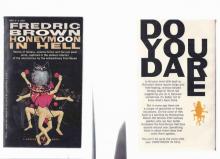 Hall of Mirrors
Hall of Mirrors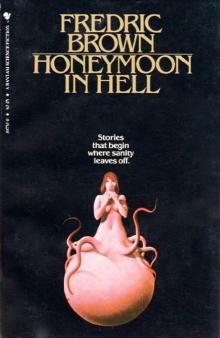 Honeymoon in Hell
Honeymoon in Hell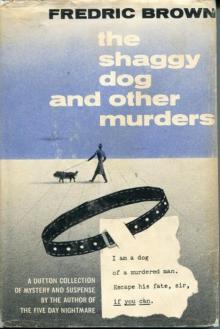 The Shaggy Dog and Other Murders
The Shaggy Dog and Other Murders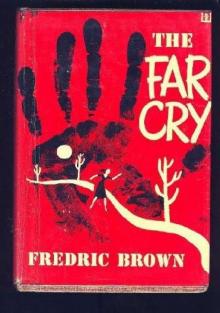 The Far Cry
The Far Cry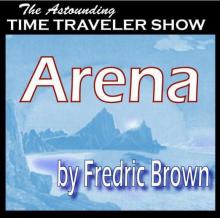 Arena
Arena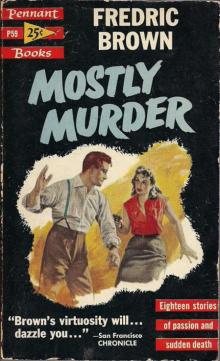 Mostly Murder
Mostly Murder The Geezenstacks
The Geezenstacks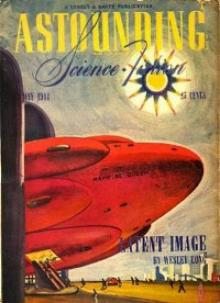 The Yehudi Principle
The Yehudi Principle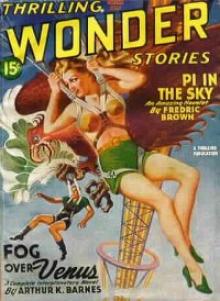 Pi in the Sky
Pi in the Sky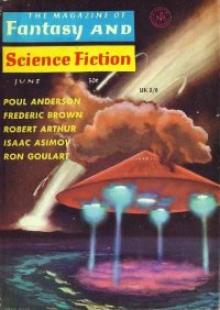 Eine Kleine Nachtmusik
Eine Kleine Nachtmusik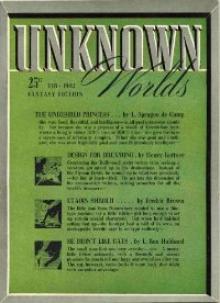 Etaoin Shrdlu
Etaoin Shrdlu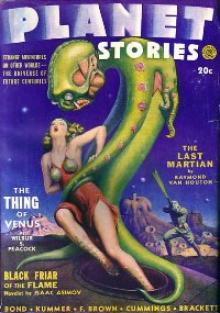 The Star Mouse
The Star Mouse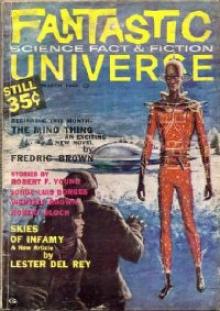 The Mind Thing
The Mind Thing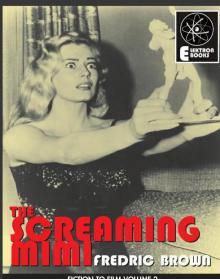 The Screaming Mimi
The Screaming Mimi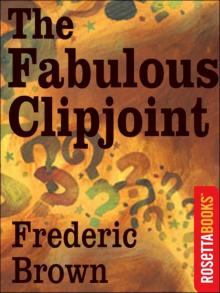 The Fabulous Clipjoint
The Fabulous Clipjoint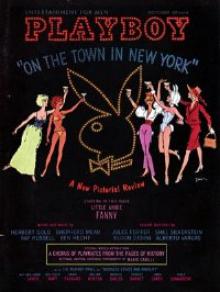 Puppet Show
Puppet Show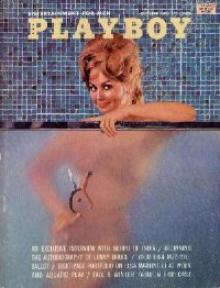 It Didn't Happen
It Didn't Happen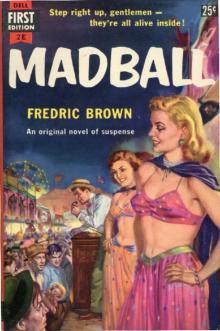 Madball
Madball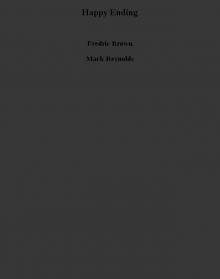 Happy Ending
Happy Ending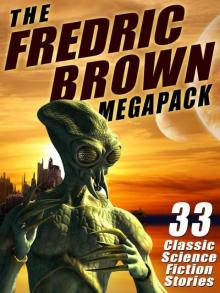 The Fredric Brown Megapack: 33 Classic Science Fiction Stories
The Fredric Brown Megapack: 33 Classic Science Fiction Stories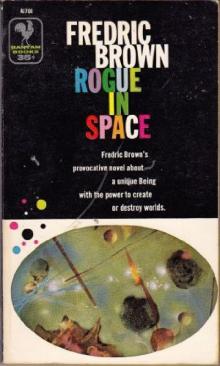 Rogue in Space
Rogue in Space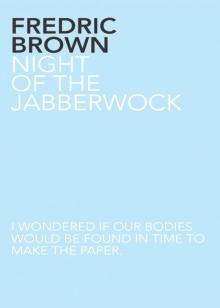 Night of the Jabberwock
Night of the Jabberwock The Dead Ringer
The Dead Ringer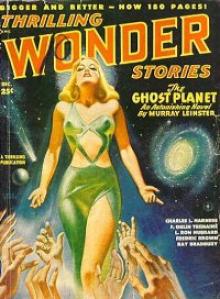 Knock
Knock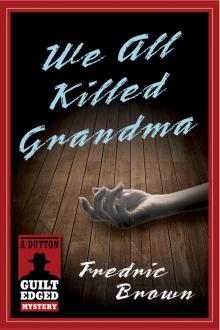 We All Killed Grandma
We All Killed Grandma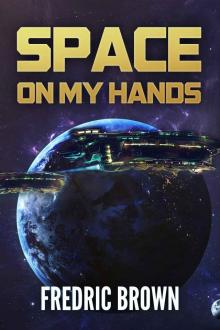 Space On My Hands
Space On My Hands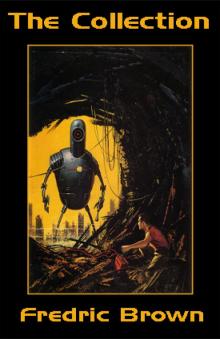 The Collection
The Collection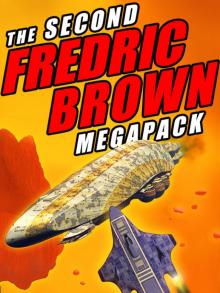 The Second Fredric Brown Megapack: 27 Classic Science Fiction Stories
The Second Fredric Brown Megapack: 27 Classic Science Fiction Stories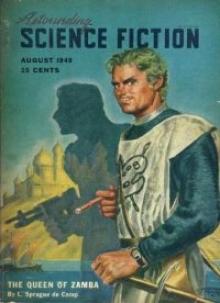 Letter to a Phoenix
Letter to a Phoenix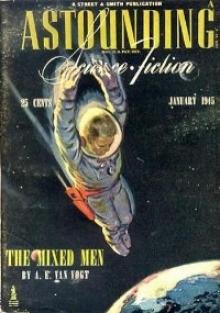 The Waveries
The Waveries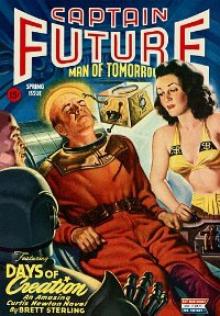 Nothing Sirius
Nothing Sirius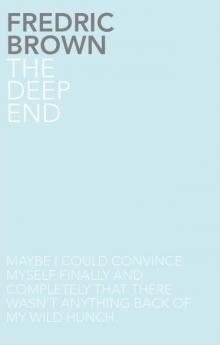 The Deep End
The Deep End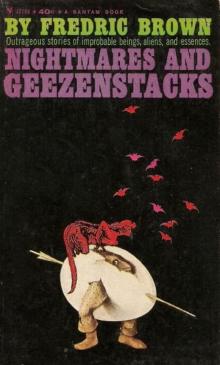 Nightmares & Geezenstacks
Nightmares & Geezenstacks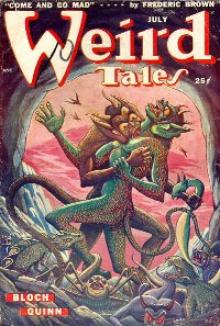 Come and Go Mad
Come and Go Mad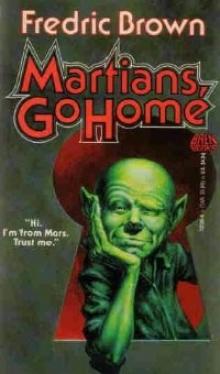 Martians, Go Home
Martians, Go Home